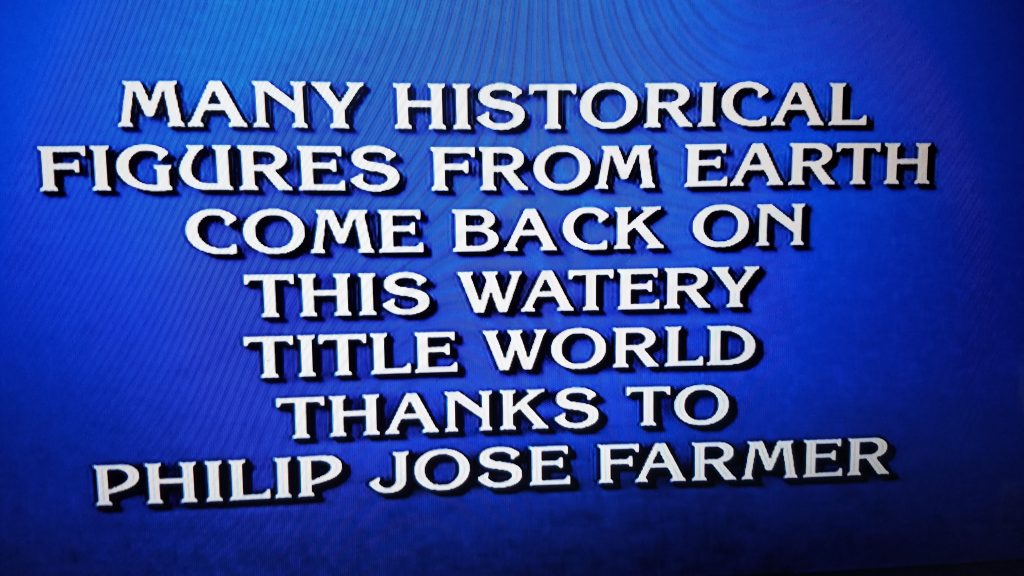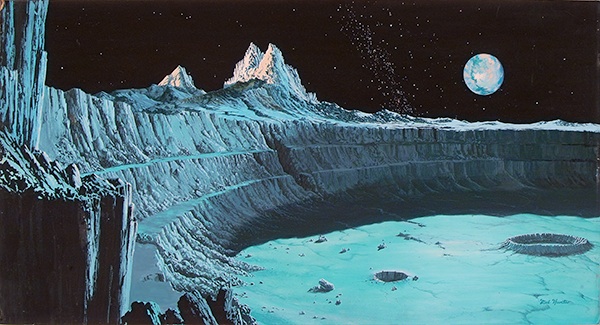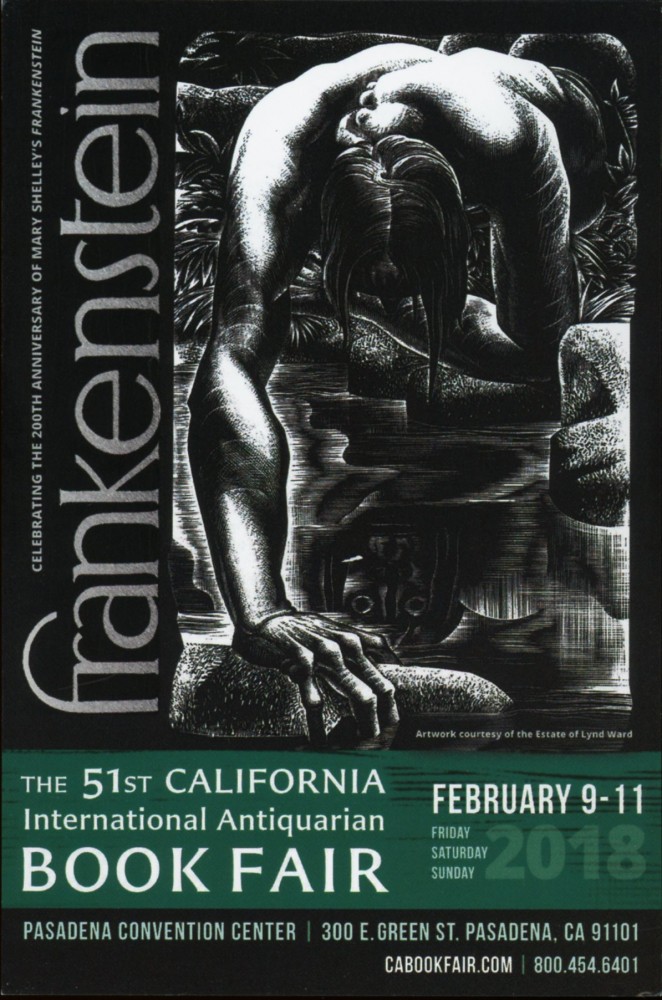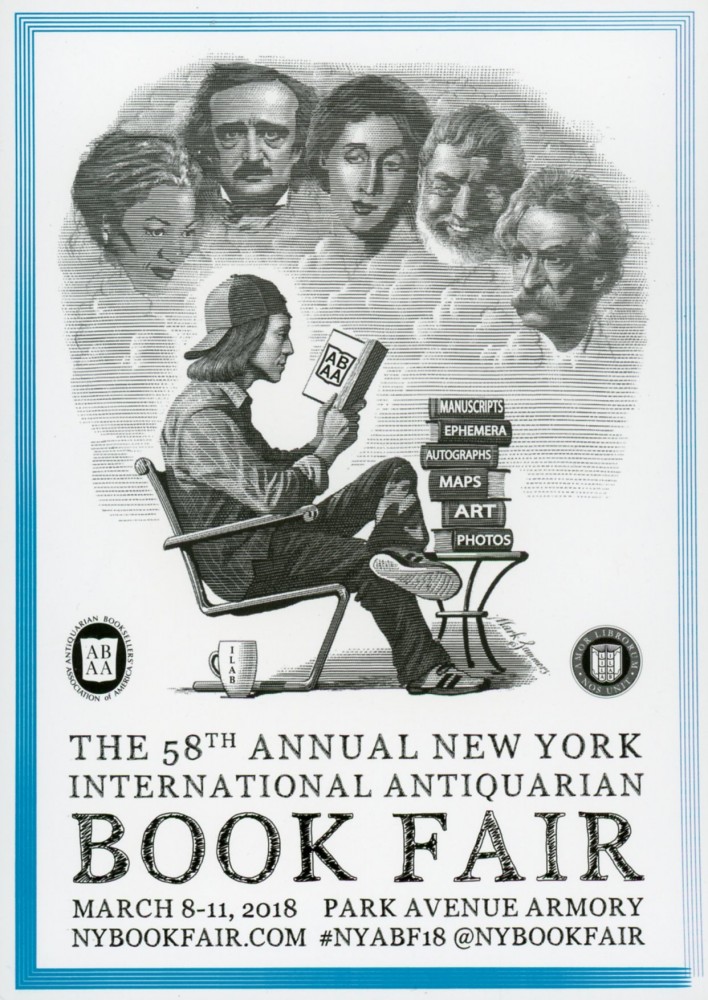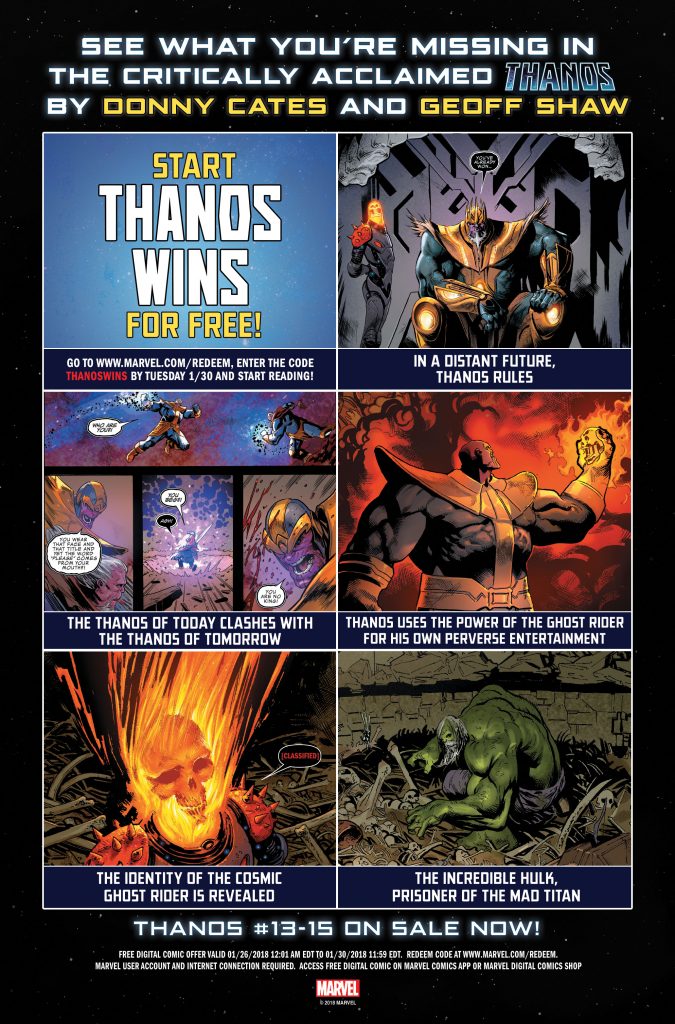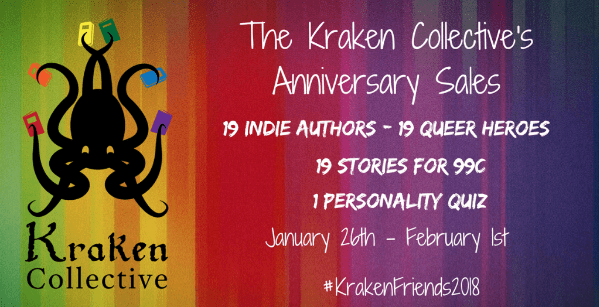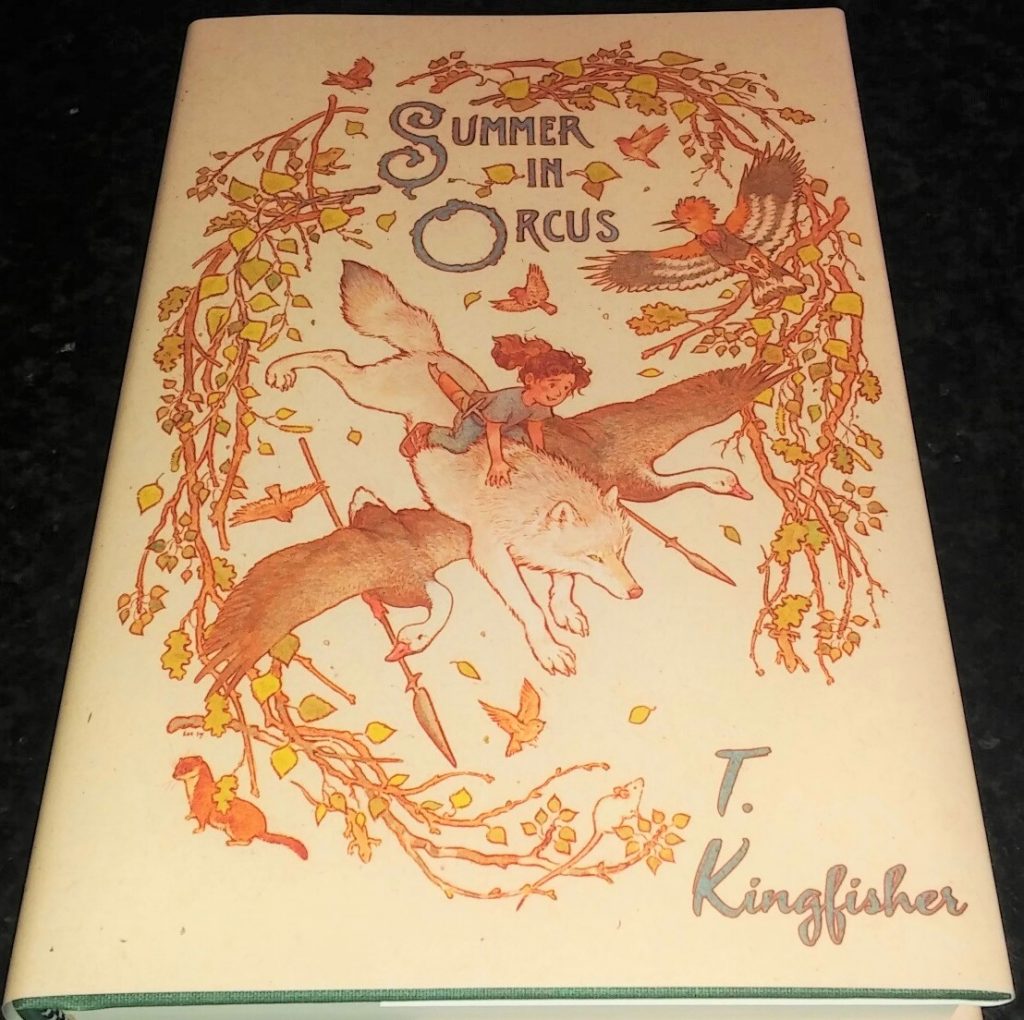(1) ABIGAIL NUSSBAUM. Last year’s Best Fan Writer Hugo winner announced that she won’t accept a nomination this year.
Third, this is something that I was pretty sure I wanted to do last August, but I gave myself some time to consider it, and now I’m certain: I’d like it known that if I were to receive a nomination in the Best Fan Writer category for the 2018 Hugos, I would respectfully decline the nomination.
I’ve debated with myself about whether and how to make this announcement. Not, to be very clear, because I’m uncertain about not wanting to be a nominee again. Without sounding like I’m complaining–since it all turned out so wonderfully in the end–being a prospective and then actual Hugo nominee is one of the most stressful experiences I’ve ever had. It certainly didn’t help that the period during which I became a viable candidate coincided so perfectly with the various puppies’ campaign against the awards, so that on top of the regular pressures of will I be nominated/will I win, I spent a lot of my time wondering whether my nomination would be scuttled by a fascist terror campaign (which is, in fact, what happened in 2015 and 2016). By the time 2017 rolled around, I had been on the Hugo merry-go-round for four years, and it was pretty hard for me to enjoy the convention or the lead-up to the awards from wondering whether this was finally going to be my year.
So while I may one day want to be nominated for the Hugo again (and maybe in another category too, if I’m eligible), I have no interest in going through the whole rigmarole again so soon, and especially when you consider that there are several other great potential nominees whose crack at the Hugo was scuttled by puppy interference. It seems like absolutely the right thing to stand back.
(2) GEORGE R.R. MARTIN. Martin, in his Hugo eligibility post, asks people not to nominate A Song of Ice and Fire for Best Series — but feel free to nominate “The Sons of the Dragon” for novella. (Following this excerpt, he has more to say about the Best Series category itself.)
The only writing I had published in 2017 was “The Sons of the Dragon,” which was published in THE BOOK OF SWORDS, Gardner Dozois’s massive anthology of original sword & sorcery stories. Like “The Rogue Prince” and “The Princess and the Queen” before it, “Sons” is more of my (fake) history of the Targaryen kings of Westeros. By length, it is a novella… but it’s not a traditional narrative. By design, it reads like history, not fiction; but since the history is entirely imaginative, it’s still fiction, even if dressed up as (fake) non-fiction.
It has been pointed out to me that the publication of “The Sons of the Dragon” makes the entirety of A SONG OF ICE AND FIRE eligible to be nominated as Best Series. I suppose that’s so. All I can say to that is: please don’t. If you like fake history and enjoyed “The Sons of the Dragon,” by all means nominate the story as a novella… but it’s really not part of A SONG OF ICE AND FIRE, and sneaking in the entire series by means of a technicality seems wrong to me.
(3) TRADEOFFS. I was interested to see Abigail Nussbaum and I had the identical thought about this piece of news.
OK, look: clearly no one wants a Benioff & Weiss Star Wars, but I'll take it if that's the price for never hearing about Confederate again.
— Abigail Nussbaum (@NussbaumAbigail) February 6, 2018
(4) FULLER BRUSH-OFF MAN. Two showrunners have left the building: “Apple’s ‘Amazing Stories’ revival loses showrunner Bryan Fuller”.
Apple has yet to launch any of the original shows funded by its $1 billion war chest, but it’s already losing part of its production team. Hollywood Reporter has learned that showrunner Bryan Fuller (of Star Trek and American Gods fame) has left Steven Spielberg’s Amazing Stories revival for the tech giant. The departure was “amicable,” according to sources, and stemmed from creative differences. Reportedly, Fuller wanted to make a Black Mirror-style show that wasn’t what Apple intended.
Fuller wasn’t new to the Amazing Stories continuation. He’d been around since 2015, when the series was attached to NBC and Spielberg wasn’t involved. He’s had some relatively short stints lately: he was booted from American Gods after the production company wanted to reduce the per-episode fee, and left Star Trek: Discovery over cost and casting issues with CBS.
The Hollywood Reporter source story has added this update:
Hart Hanson, who had partnered with Bryan Fuller on Amazing Stories, has also exited the anthology as Apple and producers Universal Television are now searching for a showrunner.
(5) HOOKED. K.M. Alexander argues “Your Fave is Problematic—That’s Okay”.
My favorite character from A Song of Ice and Fire, George R. R. Martin’s fantasy epic, is Jaime Lannister, the heir to the Lannister family, Knight of the Seven Kingdoms, and an all-around terrible person. No, really. There are forum threads dedicated to his awfulness, and I don’t disagree with anything they say. He is awful; that’s not up for debate. But I don’t care; I still like him. There is something about his wit, his tenacity, his strange sense of honor, and his odd drive to do right by his family that draws me in as a reader. He’s my favorite.
In his Banquet Speech, William Faulkner observes good writing as “the human heart in conflict with itself.” I adore that line. As a character, Jamie embodies that for me. There is so much to loathe but a lot to like. It makes him complicated, and it makes him human. However, in some circles, my statement draws ire. How can I enjoy reading about someone so terrible? After all, he is someone who symbolizes the opposite of many values I hold dear. To those people, it doesn’t make sense; it feels two-faced and hypocritical.
These voices are nothing new. I remember hearing them as a kid from conservatives, and I’ve heard them as an adult from progressives. Recently they’ve become particularly pronounced on social media, shouting down and hunting those who dare explore life through the lens of problematic fiction. Over the last few years, I’ve seen several authors attacked—on social media, within articles, in reviews, and on blogs. Fans have gone after them for the problematic circumstances, events, and behavior of characters within their novels. It’s not surprising; it’s an extension of the same attitude we have seen play out in the social sphere. In addition to holding real-life humans accountable, fandom is now trying to hold fiction accountable….
(6) SIGNING OFF. The Geek Feminism Blog says they are “Bringing the blog to a close”. No specific reason given, but they did take a look back —
Alex Bayley and a bunch of their peers — myself included — started posting on this blog in 2009. We coalesced around feminist issues in scifi/fantasy fandom, open culture projects like Wikipedia, gaming, the sciences, the tech industry and open source software development, Internet culture, and so on. Alex gave a talk at Open Source Bridge 2014 about our history to that point, and our meta tag has some further background on what we were up to over those years.
(7) NEXT IN THE JURY BOX. A new Shadow Clarke juror greets the readers: “Introducing Samira Nadkarni”.
More than anything else, community as a space for discussion and critique forces an awareness of frameworks. A friend, Shabnam, once took a lot of time to point out to me that my excitement about a book that I believed destabilised gender and problematised caste in Indian contexts was, in fact, written to privilege the upper caste cis gaze. Her emphatic point at the time was that if someone mentions a gender and caste dystopia, I should look at whose interests are being played to, and that if the book couldn’t decenter the very idea of cis and caste-based constructs of gender, then this book was not innovative in its destabilisation at all. While this was applied to a specific book series, it was an excellent lesson to take away, learn from, and cross apply to future criticism: the fact that stepping away from standard representation itself is not enough until we think about who it privileges and what it says.
These are big questions for me, and I think also big questions more generally, about how inclusion can be kindness and violence all at once, and how navigating that critically can be fraught. For me in particular, I have strong feelings about postcolonial SFF writing in general (and this is primarily what I read in my spare time), and this also forces me to recognise how this is playing to a different set of privilege systems locally that can continue to foster violent hierarchies, or aren’t being dealt with or made visible enough yet. It’s complicated and I’m honestly not equipped to do it alone.
(8) TODAY IN HISTORY
- February 7, 1940 — Walt Disney’s vision of Pinocchio debuted.
(9) COMICS SECTION.
- Cath spotted a comic that perfectly fits out recent “Cats Sleep on SFF” theme in Georgia Dunn’s Breaking Cat News from 2016.
(10) SUPER BOWL BET. Here’s how the Boston Public Library paid off after losing its Super Bowl bet.
Yes, we lost a bet.
Congrats @FreeLibrary & @Eagles. pic.twitter.com/LhOzfhiWdP
— Boston Public Library (@BPLBoston) February 5, 2018
(11) FREE READS. Asimov’s has made four Locus-recommended stories available as free reads.
Congratulations to the authors of our stories on the Locus Recommended Reading List. We’ve posted the tales here for your enjoyment. If you’re voting in the Locus Poll and you haven’t read the stories or you’d like to refresh your memory please take a look at them now.
BEST NOVELETTE
The Discrete Charm of the Turing Machine, Greg Egan – Nov/Dec 2017
Wind Will Rove, Sarah Pinsker – Sept/Oct 2017BEST SHORT STORY
Persephone of the Crows, Karen Joy Fowler – May/June 2017
An Evening with Severyn Grimes, Rich Larson – July/August 2017
Confessions of a Con Girl, Nick Wolven – Nov/Dec 2017
(12) BOARD MEETING. “Superdense wood is lightweight, but strong as steel” – Daniel Dern saw the story and asked, “How many existing sf/f ref’s does this conjure up? The first that comes to (my) mind is Howard Chaykin’s Ironwolf comic books… possibly also from Sean McMullen’s Moonworlds Saga, e.g. Voyage of the Shadowmoon.”
Newly fabricated superstrong lumber gives a whole new meaning to “hardwood.”
This ultracompact wood, described in the Feb. 8 Nature, is created by boiling a wood block in a water-based solution of sodium hydroxide and sodium sulfite. The chemicals partially strip the wood of substances called lignin and hemicellulose, which help give wood its structure and rigidity. Then the block gets squeezed between metal plates heated to 100° Celsius at a pressure of 5 megapascals — about 50 times the pressure of sea-level atmosphere. That squashes the gaps between the cell walls in the wood, shrinking the block to about 20 percent its original thickness and making it three times denser.
Researchers found that the densified wood could withstand being stretched or pulled 11.5 times harder than its natural counterpart without breaking. That makes it about as strong as steel, even though it’s more lightweight. Stainless steel pellets fired from an air gun and moving at 30 meters per second easily busted through a typical wooden plank, but got lodged in a stack of densified wood sheets with the same total thickness.
(13) ASIMOV LAUNCHED. From The Verge I Iearned — “The Falcon Heavy test flight included a copy of Isaac Asimov’s Foundation novels”.
SpaceX has just successfully launched its new Falcon Heavy rocket for the first time, and just before launch, the company revealed on its live stream that inside the rather unique cargo of a Tesla Roadster, the company had placed an “Arch” storage system containing Isaac Asimov’s Foundation book series.
An Arch is a “5D, laser optical quartz storage device” that is meant to be able to survive even in the harsh conditions of space, built by the Arch Mission Foundation. The foundation’s goal is to preserve libraries of human knowledge for interstellar travel (and to protect information in the event of calamity to Earth itself). It’s a goal that the group says was inspired by Asimov’s novels, which see mankind working to write an “Encyclopedia Galactica” to protect mankind against a coming dark age.
(14) IT’S OFFICIAL. Netflix has released Marvel’s Jessica Jones – Season 2 Official Trailer.
Jessica Jones is back as New York City’s tough-as-nails private investigator. Although this time, the case is even more personal than ever before. Fueled by a myriad of questions and lies, she will do whatever it takes to uncover the truth.
[Thanks to JJ, Chip Hitchcock, Todd Dashoff, Mark Hepworth, Cat Eldridge, John King Tarpinian, Martin Morse Wooster, Carl Slaughter, Cath, Kevin Mangan, Will R., and Andrew Porter for some of these stories. Title credit goes to File 770 contributing editor of the day Daniel Dern.]

